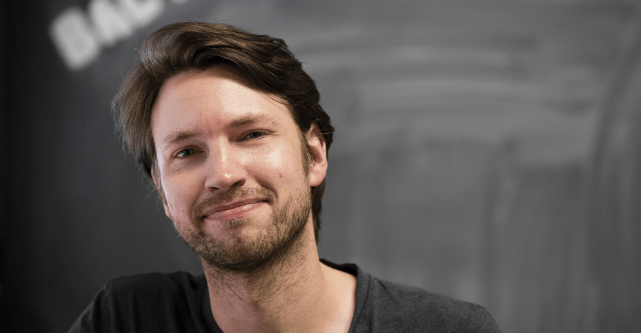
UTS director of entrepreneurship Murray Hurps. Source: Supplied.
The University of Technology Sydney has partnered up with two VC firms to help get its resident startups off campus and into the business world.
The agreements are with Galileo Ventures, which focuses on student startups, and Main Sequence Ventures, the innovation fund of CSIRO dedicated to commercialising academic research.
Main Sequence Ventures will launch its Venture on Campus program at UTS in October, giving researchers access to internships, coaching and pitching preparation. This is also intended to help university-based startups build a relationship with the VCs before they’re ready to make a pitch for funding.
Speaking to StartupSmart, Murry Hurps, director of entrepreneurship at UTS, said his goal is “to get as many students as possible launching their own startups”.
Currently, while there is a lot a university can do for founders, there is a “very clear limit” as to the amount of help they can offer in the long-term.
“The best thing we can do is get [founders] out of the university,” he says.
“If you have the best startups in your universities, the right place for those startups is among the other great startup programs and with the best investors and customers,” he adds.
In fact, Hurps sees these two VC partnerships as just the beginning and would like to see more partnerships of this kind, with more — and even more niche — VCs involved.
“The two funds will cater to a large proportion of the companies we’re working with,” he says.
“But, we’re going to need a whole different spectrum.”
There’s no one investment model that works for all startups, he adds, and these are businesses that don’t necessarily fall into traditional business models.
“There’s a broad spectrum of the kinds of companies and approaches … we can’t have a universal investment model that’s going to work,” he says.
“The goal is to build stronger relationships and in doing so increase the visibility between the startups and the opportunities,” he adds.
Having a support system in place beyond university gives startups a better chance of going further as businesses.
Through building a wider support network, “we can allow them to find the support and opportunities that turn them into a more legitimate company”, Hurps says.
“The worst thing you can do is trap a startup inside an environment,” he adds.
These partnerships are just the next stage in an ongoing development of the startup space in Australia.
It wasn’t long ago that there were very few funds supporting startups, as well as “precious little university support for startups and very few startups themselves”, Hurps says.
“Because of the explosion in the startup ecosystem in Australia, there has never been a better time to create your own job,” he adds.
And while running a startup comes with its challenges, Hurps is adamant that anyone can do it. If universities, VCs or any support structures have a selection bias, they’re going to miss out on opportunities, he says.
“It’s universally worth the trouble to unlock new opportunities,” he says.
NOW READ: Australia’s startup ecosystem is booming and universities are jumping in


COMMENTS
SmartCompany is committed to hosting lively discussions. Help us keep the conversation useful, interesting and welcoming. We aim to publish comments quickly in the interest of promoting robust conversation, but we’re a small team and we deploy filters to protect against legal risk. Occasionally your comment may be held up while it is being reviewed, but we’re working as fast as we can to keep the conversation rolling.
The SmartCompany comment section is members-only content. Please subscribe to leave a comment.
The SmartCompany comment section is members-only content. Please login to leave a comment.